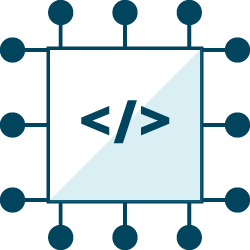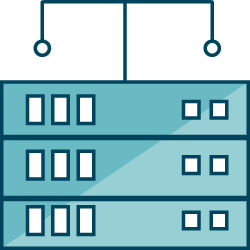"Network plays a pivotal role in the consistent flow of data from consumer to partner to vendor and back. A digital network can dynamically adjust with the changing business needs of an enterprise allowing more agility, higher security, simplicity, and higher operational efficiency."

Effective networking solutions drastically brings down the costs in operations and infrastructure leveraging your business

Trust our professionals with the security of your Ethernet and Fiber Channel communications.

Trust our professionals with the security of your Ethernet and Fiber Channel communications.

To maximise your business's potential, you'll need a fully managed and secure wired and wireless network.

Easily identify and isolate flaws, then remedy them with intentional segregation.

Using our datacenter networking services, automate adherence to application policies in existing infrastructure.

Using Konverge's extensive reports, plan your network expansion, maintenance, and security procedures.

Our streamlined, safe, and scalable installations can help you achieve your strategic business goals.

Increase your Internet reach without having to invest in new infrastructure.